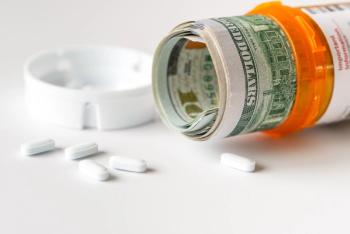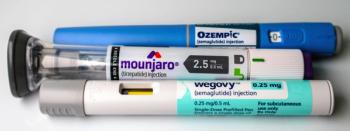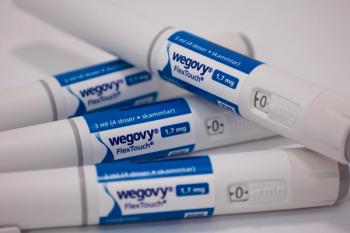
The Summit provides a rare opportunity for professionals to dive deep into emerging healthcare technologies and treatment models.

The Summit provides a rare opportunity for professionals to dive deep into emerging healthcare technologies and treatment models.

Sarah Thomas and David Skomo of HealthDyne discuss some of the most useful innovations that have been helpful for pharmacies.

Casey Koch, PharmD, MBA, BCACP, clinical pharmacy coordinator at SelectHealth discusses how pharmacists can reduce patient burden.

A conversation with Sarah Thomas and David Skomo of HealthDyne at Asembia’s AXS25 Summit.

The Inflation Reduction Act's drug price negotiations could lead to reimbursement complexities, potential pharmacy closures, and reduced patient access to medications, particularly specialty drugs.

Although the market is expected to continue to become more popular, compounding pharmacies will no longer be allowed to manufacture these medications, as shortages have been listed as resolved.

A conversation with Shawn Griffin, MD, FAAFP, President and CEO of URAC, at Asembia’s AXS25 Summit.

Through communication and reform, pharmacies will be able to make changes in order to continue to provide the best care to patients.

A conversation with Harry Travis, BSPharm, President of the Travis Health Group, at Asembia’s AXS25 Summit.

A conversation with Casey Koch, PharmD, MBA, BCACP, clinical pharmacy coordinator at SelectHealth, at Asembia’s AXS25 Summit.

A conversation with Becky Davis, principal at Charles River Associates, at Asembia’s AXS25 Summit.

Through digital innovations, transparency, and accessibility, pharmacists can help meet patients where they are at to improve their health outcomes.

Glucagon-like peptide-1 medications are the fastest-growing class of medication and will continue to be prevalent as more indications, such as sleep apnea, are added.

From medication dispensers to comprehensive patient care advocates, pharmacists have never been more essential to the health care team and to patients in specialty care.

The role of the community pharmacist is beginning to expand into specialty pharmacy spaces to increase access and outcomes for patients.

Since biosimilars first launched, unique pricing incentives and strategies have been created to incentives adoption.

One of the biggest issues pharmacists are watching is the Medicare Part D redesign and copay smoothing policy.

The specialty drug market has exploded in the last few decades.

As medication experts, pharmacists can advocate to organizational decision makers around the benefits of biosimilars.

Data from 2024 are being used as a way to predict what changes may be on the way for 2025.

The market is sensitive to both upstream and downstream pressures that impact drug pricing.

The specialty drug market has exploded, and will continue to grow across sectors such as oncology and neurology.

A lack of clarity around certain provisions of the Inflation Reduction Act has presented challenges to payers.

A siloed approach to care can worsen patient outcomes, but collaboration between one health system specialty pharmacy and a manufacturer led to better patient care.

Understanding the goals of each party is the first step to a successful collaboration.

Collaboration between health system specialty pharmacists and pharmaceutical manufacturers can benefit patients in the long run.

Collaboration between health system specialty pharmacies and manufacturers can benefit patients in the long run.

Addressing requirements around FDA interchangeability designations can increase the adoption of biosimilar substitutions at the pharmacy level.

A recent bill introduced to Congress is intended to prevent product hopping, a practice that extends exclusivity and hinders the adoption of biosimilar therapies.

Distributors can help manufacturers create patient access programs that reduce costs, copays, and co-insurance.